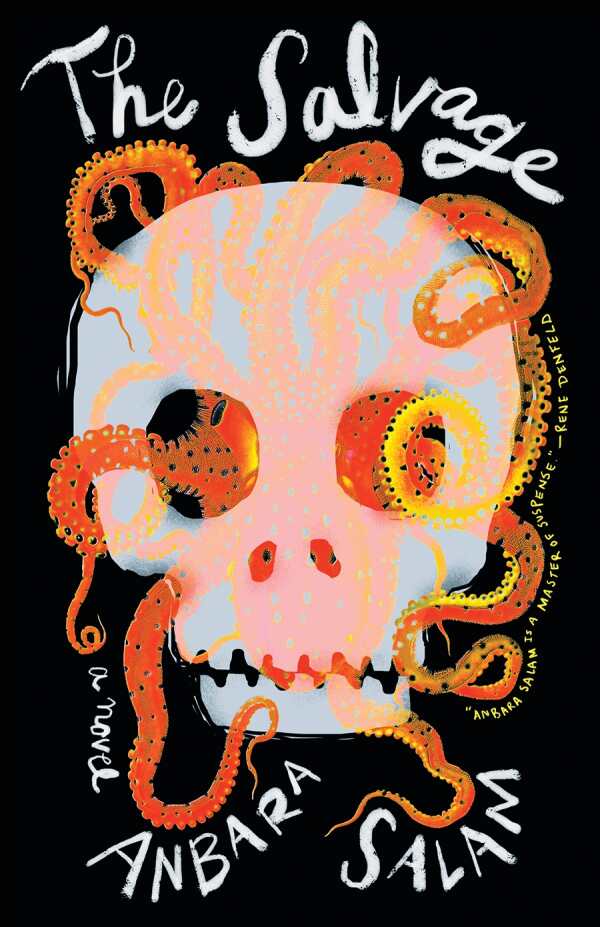The Salvage
In Anbara Salam’s chilling novel The Salvage, a marine archaeologist hunts down lost artifacts and ghosts in frigid waters.
On the cusp of 1963, Marta performs a dive in remote Cairnroch to photograph local hero Captain James’s recovered ship. When a second dive reveals the theft of expensive artifacts, Marta teams up with Elsie, a kind hotel worker and Cairnroch native, to recover them. As the search drags on through the Cuban Missile Crisis and a winter deep freeze, supernatural happenings connected to Captain James’s legacy convince Marta that she is being haunted by an intimate associate whose death, a secret from her past, still threatens her career and growing intimacy with Elsie.
Isolated, bleak, colorless, and wind-whipped, Cairnroch is an overwhelming and evocative setting, subsumed in unforgiving religious dogma and chilling folklore. In the grungy island’s post-World War II dilapidation, pearlwort is adorned to prevent revival of the deceased, a burning lighthouse is proclaimed a sign of God’s favor, and a forgotten Virgin Mary statue is blinded with a molding black cloth. Descriptions of islanders surviving the cold are tactile and frostbitten, even bloody: they melt snow for water, hoard coal for fires, and encounter dead animal carcasses on the ice. Marta’s self-narrated hauntings are creepy if ambiguous: a handprint on her window could be just windblown seaweed.
Marta, judged an “outsider” and “reprobate,” becomes paranoid: “there is something knowing, almost capricious, lingering among the island’s dark stones.” She is abrasive, impulsive, and manipulative, though her insecurities and traumas have sympathetic roots. Her closeness to Elsie is a warm reprieve—but also a source of consuming anxiety because of Marta’s propulsive fear of abandonment.
An atmospheric psychological thriller, The Salvage intertwines cabin fever, personal guilt, and ominous island histories.
Reviewed by
Isabella Zhou
Disclosure: This article is not an endorsement, but a review. The publisher of this book provided free copies of the book to have their book reviewed by a professional reviewer. No fee was paid by the publisher for this review. Foreword Reviews only recommends books that we love. Foreword Magazine, Inc. is disclosing this in accordance with the Federal Trade Commission’s 16 CFR, Part 255.

